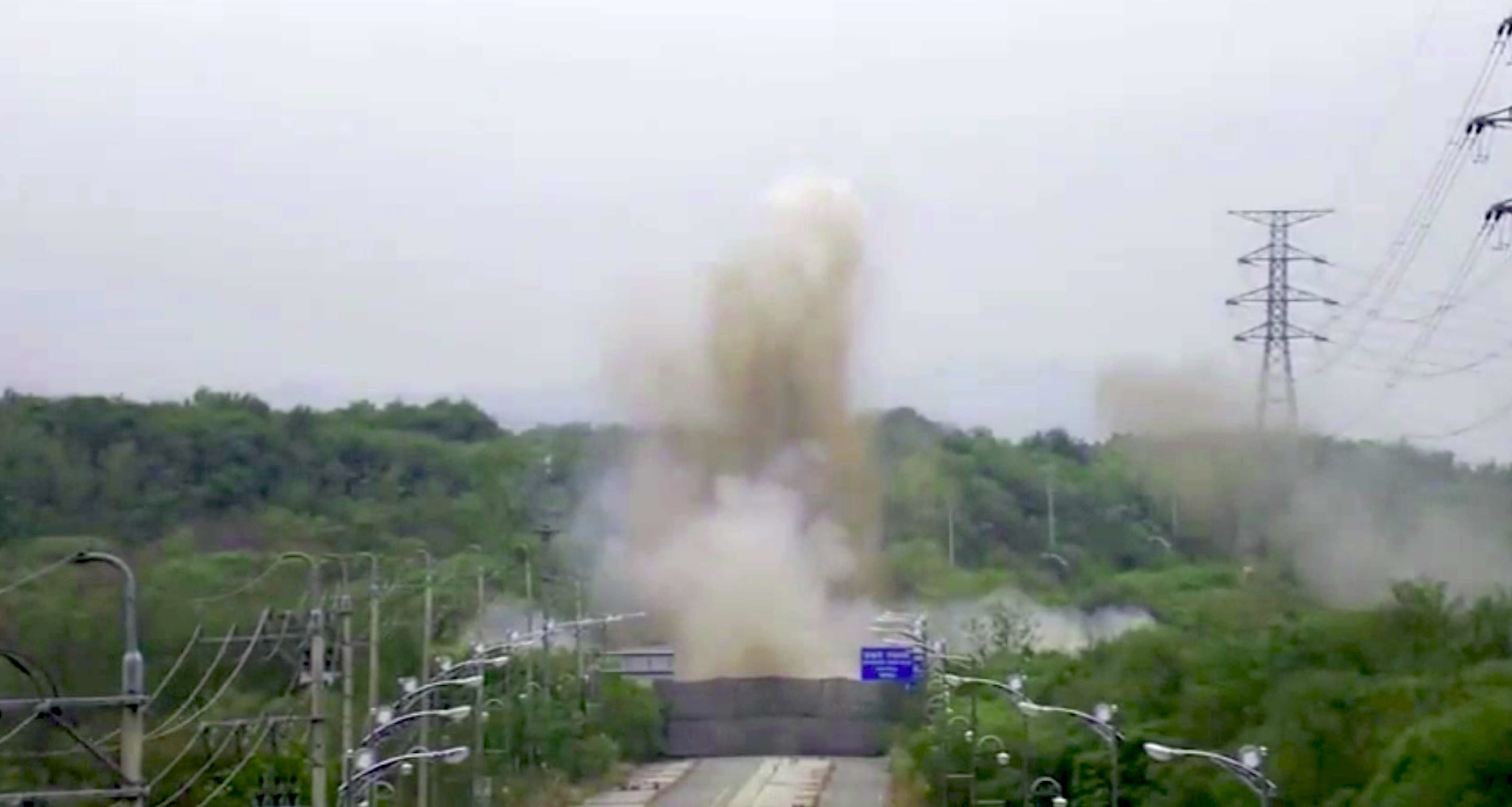
North Korea destroys inter-Korean roads and rail lines in close proximity to the border
The South Korean military fired warning shots after North Korea blew up portions of inter-Korean roads and rail lines on its side of the heavily fortified border between the two Koreas on Tuesday.
Last week, Pyongyang announced that it would completely isolate the inter-Korean roads and railways and further fortify the areas on its side of the frontier as part of its initiative to establish a “two-state” system, thereby abandoning its long-standing objective of unification.
On Tuesday at approximately midday, the Joint Chiefs of Staff (JCS) of the South reported that certain northern sections of road and rail lines that were connected to the South were devastated.
The unification ministry of Seoul, which is responsible for cross-border affairs, condemned the incident as a blatant violation of previous inter-Korean agreements, describing it as “highly abnormal.”
Koo Byoung-sam, the ministry spokesperson, stated at a briefing that North Korea’s persistent conduct of such regressive behavior is regrettable.
There was an increase in tensions following the North’s accusation that Seoul had sent drones over Pyongyang last week. Kim Yo Jong, the influential sister of North Korean leader Kim Jong Un, issued a warning on Tuesday that Seoul would “pay a dear price” because the drones dispersed a “huge number” of anti-North leaflets.
The South Korean government has refrained from responding to inquiries regarding whether the drones were operated by the South Korean military or civilians.
South Korea and North Korea have also engaged in disputes regarding garbage balloons that have been launched from North Korea since May. According to Pyongyang, the launches are in response to balloons that were sent by anti-regime activists in theSouth.
Following the demolitions on Tuesday, the South’s military published a video that depicted an explosion and a plume of smoke ascending above a section of road where the North had installed a black barrier.
The video also depicted a group of North Korean military officials observing and guiding a number of garbage trucks and earthmovers as they approached.
According to the report, the South’s military responded to the explosions by firing warning rounds south of the military demarcation line. However, Seoul’s side of the border was not affected.
Old Signs of Reconciliation
Since early this year, when Kim Jong Un declared the South a “primary foe” and declared that unification was no longer feasible, Pyongyang has been taking measures to sever inter-Korean ties and redefining it as a distinct, hostile enemy state.
The 1950-53 conflict between the two Koreas concluded in an armistice, not a peace treaty, with the result that they are still technically at war.
Railways and highways that traverse international borders are vestiges of the 2018 summit that served as a catalyst for reconciliation. Seoul has provided Pyongyang with low-interest loans totaling over $132 million to facilitate the reconstruction of the connections, according to data from the unification ministry.
“It was a significant inter-Korean cooperation project that was implemented at the North’s request,” stated ministry spokesperson Koo. He also noted that Pyongyang was still required to repay the loans.
In 2020, the North destroyed a joint liaison office that had been established in a border village following the collapse of nuclear negotiations with the United States.
In 2023, South Korea sued the North for approximately 45 billion won ($33 million) in damages resulting from the demolition of the joint office.
In a press briefing, Mao Ning, the spokesperson for the Chinese foreign ministry, expressed Beijing’s apprehension regarding the current situation and its desire to prevent the conflict from escalating further.
The government of Gyeonggi Province, South Korea, which is adjacent to the North, announced on Tuesday that a specialized police force would be deployed to combat the distribution of anti-North Korea leaflets from specific border regions.
A prohibition on such launches was overturned by the constitutional court of South Korea last year.
Proponents argue that leaflet campaigns should be respected as a form of free expression; however, critics and certain lawmakers contend that the police should prevent them if they pose a threat to people’s lives and safety.
($1 = 1,362.9700 won)
All Categories
Recent Posts
Tags
+13162306000
zoneyetu@yahoo.com



